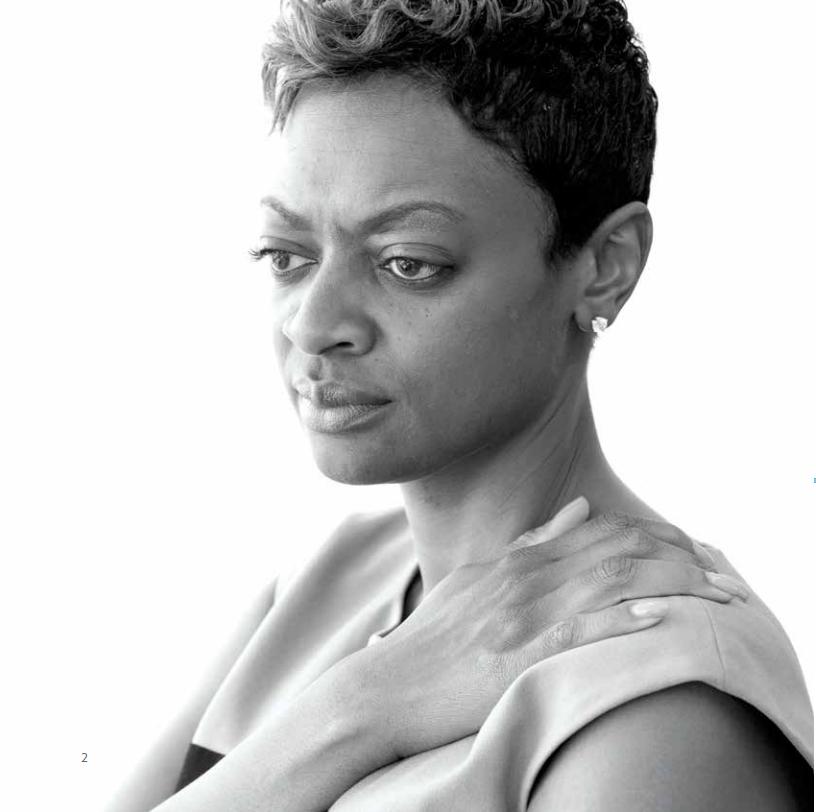
In Carlette’s family, cancer was all too familiar and clearly hereditary. Her mother was diagnosed with cancer at a young age, and eventually succumbed to her cancer, just as Carlette’s grandmother and many of her great aunts did before her.
When Carlette was diagnosed with breast cancer in 2009 at the young age of 34, genetic testing played an important role in helping her and her doctor decide among treatment options. As an African -American, she knew many people in her community experienced challenges with knowledge of and access to health care and available innovative care options. She wanted to take charge of her health.
Carlette’s genetic counselor encouraged her to have BRCA testing. She took time to explain exactly what a positive result would mean and that many people are living with a BRCA mutation. Ultimately, Carlette decided that testing would empower her to consider choices and make decisions, not only for herself, but also for her family.
With her mother facing her final battle with cancer, Carlette decided to postpone sharing her own positive BRCA1 results, so as not to take the focus away from her mother’s care. Such a decision is not uncommon. Many women like Carlette, who often find themselves in the role of caretaker, delay important screenings and health maintenance to care for others. After telling her four sisters, three chose to be tested and one tested positive. Cousins and other relatives also chose to be tested, with two more testing positive. Her family was getting the facts.
Being tested helped Carlette understand why cancer was so prevalent in her family, and allowed her to consider more personalized therapeutic options for treating her BRCA1-related breast cancer. Her goal was to reduce her risk of having a second breast cancer, or ovarian cancer and she decided on the option of having a bilateral mastectomy as well as removing her ovaries. Her relationship with the Basser Center helped her understand the value of targeted treatments and preventative surgical measures, and transformed her into a passionate advocate.
For almost seven years after her mastectomy and oophorectomy, Carlette lived cancer-free, seeing her son through his teen years, serving as worship leader at her church, working full-time in IT, and visiting Penn Medicine for follow-ups every six months. Then, in 2016, her breast cancer had returned, now metastatic. Under the director of her oncologist, Basser executive director Susan Domchek, MD, aggressive chemotherapy and radiation treatment helped get it under control. Today, Carlette’s treatment plan consists of bone strengthening injections once monthly and oral PARP inhibitors she takes twice daily. Carlette is committed to living her best life: she still works full-time and has even found an unexpected second chance at love.
Read more about Carlette’s journey with BRCA1 and metastatic breast cancer on Penn Medicine.